
2nd Circ. Urged To Hold Title VII Covers Sexual Orientation
By Kevin Penton
Law360, New York (October 13, 2016, 8:39 PM EDT) — An advertising executive with agency DDB Worldwide who alleges a supervisor discriminated against him because of his sexual orientation urged the Second Circuit on Wednesday to clarify that Title VII protects employees from discrimination because of such bias.
Matthew Christiansen urged the appellate court to reverse its own precedent from 2000 on the question, arguing that the advertising and marketing agency is wrong to argue that only an act of Congress can amend Title VII of the Civil Rights Act of 1964 to cover discrimination based on sexual orientation, according to his reply brief.
“The truth is that someone has to be the leader in civil rights, and it does not have to be Congress in this case,” Christiansen argued.
Overturning its decision in Simonton v. Runyon — which held that Title VII does not cover sexual orientation discrimination — would give clear authority to the U.S. Equal Employment Opportunity Commission to take enforcement actions, Christiansen told the Second Circuit.
“This court must overturn Simonton to provide for sexual orientation protection,” the brief reads, “otherwise, without the protection then employers like appellees will ignore employee complaints unless they know the EEOC can and will enforce a law to protect sexual orientation.”
Christiansen, who is gay and HIV-positive, had initially sued DDB, parent company Omnicom Group Inc. and several individuals in May 2015, bringing various claims under Title VII, the Americans with Disabilities Act and other statutes.
He alleged that after being hired in April 2011 as an associate creative director, he was harassed and discriminated against by Joe Cianciotto, a supervisor who is a named defendant.
Cianciotto circulated lewd pictures around the office and on Facebook that he drew depicting Christiansen performing various vulgar acts and started false rumors that Christiansen had AIDS, behavior that the company and its top brass ignored despite repeated complaints, according to the suit.
Christiansen says he feared the consequences of having to reveal his HIV status if he filed a complaint against his supervisor. But after seeing a photo he found to be particularly offensive in 2014, he filed a charge with the EEOC. The agency issued Christiansen a right-to-sue notice in March 2015.
In March 2016, U.S. District Judge Katherine Polk Failla ruled that Christiansen’s suit could not proceed in part because Title VII excludes claims of sexual orientation discrimination.
Citing precedent established in Simonton, Judge Failla said the Second Circuit “unequivocally held that Title VII does not proscribe discrimination because of sexual orientation,” adding that the appeals court drew a line between sexual orientation and sex-based discrimination claims.
DDB urged the Second Circuit last month to affirm the Southern District of New York’s ruling, saying that it is based on valid precedent.
DDB contended that even if the district court had erred in following Simonton and declining to extend Title VII protection to Christiansen’s assertions of sexual orientation discrimination, the Title VII claims are nevertheless time-barred since all the alleged conduct occurred more than 300 days prior to the EEOC’s October 2014 charge, according to court documents.
Christiansen countered that argument on Wednesday by asserting that the 300-day clock began ticking during that same month, when he became aware of an offensive 2011 Facebook post that referred to him as a “sissy,” according to his brief.
“This court has the right to reverse old, stale law — which is Simonton — that the district judge confirmed was the only thing that constrained her from ruling in our favor,” Susan Chana Lask, an attorney representing Christiansen, told Law360 on Thursday.
Howard J. Rubin, an attorney representing many of the defendants, referred questions to DDB officials, who could not be reached for comment on Thursday.
Counsel for Cianciotto could not be reached for comment on Thursday.
On Tuesday, the Seventh Circuit set aside its own ruling that Title VII does not protect against sexual orientation discrimination, as the full court agreed to rehear a case that a lesbian professor brought against Ivy Tech Community College after she was repeatedly passed over for a promotion.
In a brief order, the appeals court granted Kimberly Hively’s petition for an en banc rehearing in a case she brought against the school in 2014. Hively had claimed to have been blocked from a full-time position because of her sexual orientation. In granting the rehearing, the court vacated a July 28 ruling from a three-judge panel, which upheld a lower court’s decision to dismiss the case.
Christiansen is represented by Susan Chana Lask of the Law Offices of Susan Chana Lask.
The defendants except Cianciotto are represented by Howard J. Rubin, Shira Franco and Judith Kong of Davis & Gilbert LLP. Cianciotto is represented by Rick Ostrove of Leeds Brown Law PC.
The case is Christiansen v. Omnicom Group Inc. et al., case number 16-748, in the U.S. Court of Appeals for the Second Circuit.
–Additional reporting by Kelly Knaub and Matthew Bultman. Editing by Bruce Goldman.

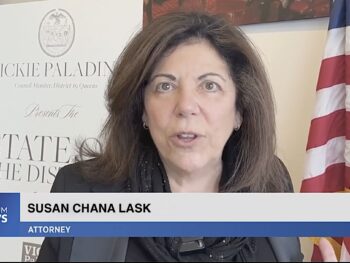
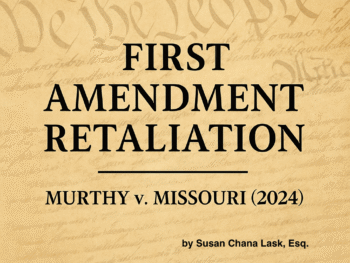
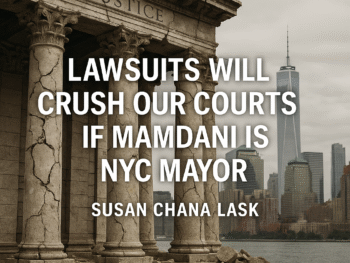
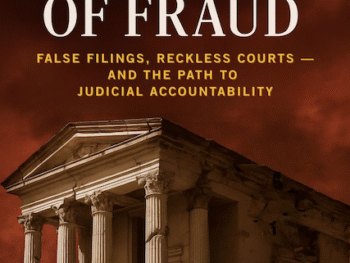
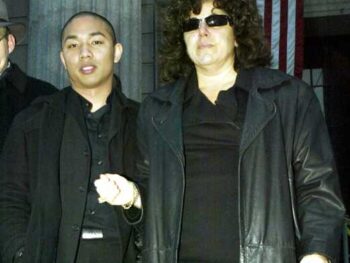




 LAW 360: LASK ARGUES CHANGE IN LAW FOR EMPLOYMENT DISCRIMINATION CASE IN 2D CIRCUIT — Copy
LAW 360: LASK ARGUES CHANGE IN LAW FOR EMPLOYMENT DISCRIMINATION CASE IN 2D CIRCUIT — Copy